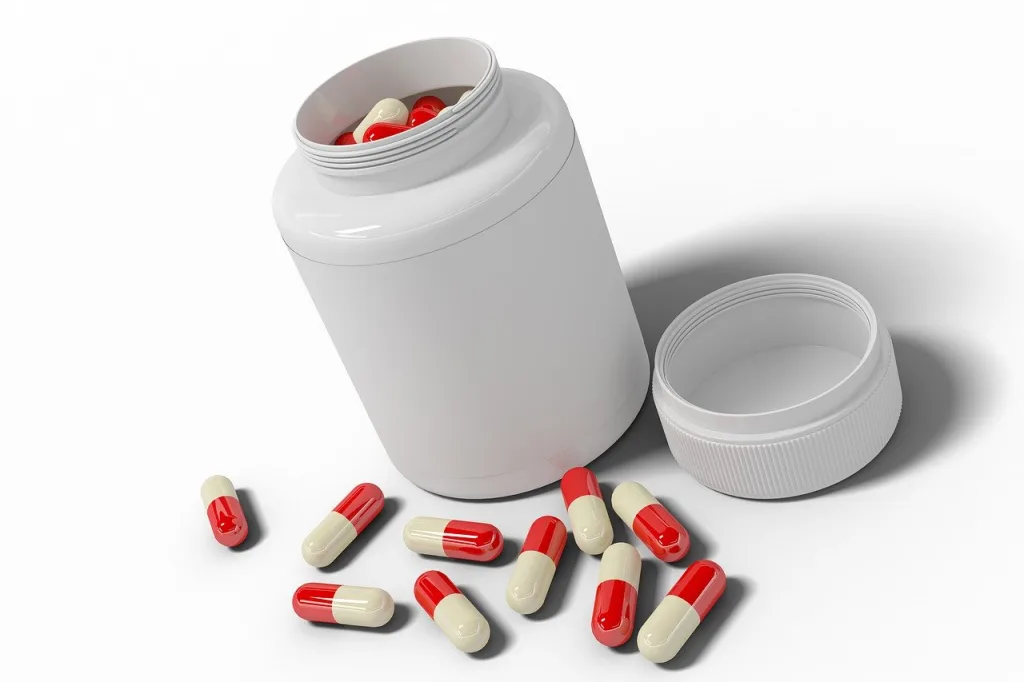Introduction to Weight Loss
Understanding Weight Loss

Weight loss is a multifaceted journey that involves more than just cutting calories or increasing physical activity. At its core, it is the process of reducing body mass, specifically fat mass, through a combination of dietary changes, exercise, and behavioral modifications. While many individuals may think of weight loss purely in terms of aesthetics, it is essential to recognize the profound impact that maintaining a healthy
weight can have on overall health and well-being. The relationship between body weight and various health conditions, including cardiovascular diseases, diabetes, and certain cancers, underscores the importance of understanding the mechanisms behind weight loss.
The science of weight loss is rooted in the principles of energy balance, which is the relationship between the calories consumed through food and beverages and the calories expended through metabolic processes and physical activity. A caloric deficit, which occurs when the body expends more energy than it consumes, is fundamental to weight loss. However,
achieving this deficit can be influenced by numerous factors such as metabolism, hormonal regulation, and individual lifestyle choices. Understanding these dynamics can empower individuals to adopt strategies that align with their unique physiological and psychological needs.

Diet plays a pivotal role in the weight loss process. A comprehensive approach to diet involves not only the quantity of food consumed but also the quality. Nutrient-dense foods, such as fruits, vegetables, lean proteins, and whole grains, provide essential vitamins and minerals while promoting satiety and reducing cravings. Moreover, recognizing the significance of macronutrients—carbohydrates, proteins, and fats—can help individuals tailor their diet plans to optimize weight loss. Additionally, understanding the impact of processed foods and added sugars can guide individuals toward healthier eating patterns that support their weight loss goals.
Weight loss medications can also play a significant role in the journey for some individuals, particularly those with obesity-related health issues. These medications are designed to assist with weight management by suppressing appetite, increasing feelings of fullness, or inhibiting fat absorption. However, it is crucial to approach weight loss medications with caution, as they are not a one-size-fits-all solution. A thorough consultation with healthcare professionals is essential to evaluate the risks and benefits, as well as to explore the potential for integrating medication with lifestyle changes for more sustainable results.
Ultimately, understanding weight loss is about recognizing that it is not merely a short-term endeavor but a lifelong commitment to health. Developing a holistic perspective that encompasses diet, physical activity, and behavioral changes is vital for long-term success. Each individual’s journey is unique, shaped by their personal experiences, preferences, and challenges. By fostering a deeper understanding of the intricacies of weight loss, individuals can equip themselves with the knowledge and tools necessary to achieve and maintain a healthy weight, paving the way for improved quality of life and enhanced well-being.
The Importance of Diet and Medication
Diet serves as the foundation of any weight loss endeavor. The foods we consume directly influence our metabolism, energy levels, and satiety. A balanced diet rich in whole foods, including fruits, vegetables, lean proteins, whole grains, and healthy fats, provides essential nutrients while promoting a caloric deficit necessary for weight loss. Additionally, specific dietary patterns, such as the Mediterranean or low carbohydrate diets, may be tailored to individual preferences and metabolic responses, thereby enhancing adherence and success. The importance of caloric quality cannot be overstated; nutrient-dense foods not only support weight loss but also contribute to overall health by reducing the risk of chronic
diseases.




journey of weight loss impacting not only the effectiveness of weight
management strategies but also overall health As individuals embark on
this path understanding the significance of a well balanced diet in
conjunction with appropriate medications can lead to more sustainable
results A comprehensive approach that combines both dietary choices and
pharmacological support offers a multifaceted framework for achieving
weight loss goals enhancing the quality of life and preventing obesityrelated
complications
Medication can play a complementary role in weight management, particularly for individuals struggling with obesity or those who have not achieved satisfactory results through diet and exercise alone. Weight loss medications, approved by healthcare professionals, can assist in reducing appetite, increasing feelings of fullness, or inhibiting fat absorption. These pharmacological interventions can be especially beneficial for individuals with underlying health conditions or metabolic disorders that complicate
weight loss efforts. It is essential, however, that medications are used in conjunction with lifestyle changes rather than as a standalone solution, ensuring a holistic approach to weight management.
The synergy between diet and medication highlights the importance of a personalized strategy. Each individual’s dietary needs and medical history are unique, necessitating tailored plans that consider factors such as age, gender, activity level, and pre-existing health conditions. Consulting with healthcare professionals, such as dietitians and physicians, is vital for developing an integrated approach that effectively combines dietary modifications with appropriate pharmacotherapy. This collaboration not
only enhances the efficacy of weight loss efforts but also ensures safety and minimizes potential side effects associated with medications.
In conclusion, the importance of diet and medication in the context of weight loss cannot be overlooked. A comprehensive understanding of how these elements interact enables individuals to make informed decisions about their weight management strategies. By prioritizing a balanced diet and considering pharmacological options where appropriate, individuals can navigate the complexities of weight loss more effectively. This holistic approach fosters a sustainable lifestyle that not only promotes weight loss
but also contributes to long-term health and well-being, ultimately empowering individuals to achieve their weight loss goals and enhance their quality of life.
Overview of the topic

This serves as an introduction to
“Weight Loss Wonders: A Comprehensive Look at Diet Foods and
Medications,” a resource designed to empower readers with knowledge
about effective weight management strategies. This article addresses two
pivotal aspects of weight loss: diet foods and weight loss medications. In an
era where misinformation abounds, this comprehensive guide aims to
provide evidence-based insights that can help individuals make informed
decisions about their weight loss journeys.
In the first section, the article delves into the science behind diet foods, exploring various categories including low-calorie, high-protein, and fiberrich options. Each chapter will highlight the nutritional benefits of these foods, discussing how they can contribute to weight loss while promoting overall health. Readers will gain an understanding of not only what to eat but also how to integrate these foods into their daily routines effectively. The goal is to demystify the concept of diet foods, making it accessible and
practical for everyone, regardless of their starting point.
The second focus of the article centers on weight loss medications, a topic that often invites skepticism and confusion. This section aims to clarify the role of pharmaceuticals in weight management by examining FDA approved medications, their mechanisms of action, and potential side effects. Through a detailed analysis, readers will learn how these medications can be paired with dietary changes to enhance weight loss results. The article emphasizes the importance of consulting healthcare professionals before starting any medication, ensuring that readers are equipped with the necessary knowledge to navigate this aspect of weight loss safely and effectively.
Additionally, “Weight Loss Wonders” includes personal testimonials and case studies, showcasing real-life examples of individuals who have successfully utilized diet foods and medications in their weight loss efforts. These narratives not only serve to inspire but also illustrate the diverse approaches to weight loss that can be tailored to individual needs and lifestyles. By presenting a variety of experiences, the article fosters a sense of community among readers and encourages them to share their own journeys.
Ultimately, this articleserves as a comprehensive reference for anyone seeking to understand the multifaceted nature of weight loss. Whether readers are just beginning their journey or looking to refine their strategies, “Weight Loss Wonders” provides the tools, insights, and motivation necessary to achieve sustainable results. Through a blend of scientific research, practical advice, and personal stories, this article aims to empower individuals to take charge of their health and wellness in a meaningful way.
The Science of Weight Loss
Metabolism and Its Role
Metabolism is a term frequently encountered in discussions surrounding weight loss, yet its complexities are often oversimplified. At its core, metabolism refers to the biochemical processes by which our bodies
convert food into energy. This complex network of reactions is crucial not only for maintaining vital functions but also for regulating body weight. Understanding metabolism’s role can provide deeper insights into effective weight loss strategies, particularly when considering diet foods and weight loss medications.

One of the primary components of metabolism is the basal metabolic rate (BMR), which represents the number of calories the body requires at rest to maintain essential functions such as breathing, circulation, and cellular repair. BMR varies from person to person, influenced by factors such as age, gender, genetic makeup, and body composition. For instance, individuals with higher muscle mass typically have a higher BMR, as muscle tissue requires more energy to maintain than fat tissue. This understanding underscores the importance of incorporating strength training into a weight loss regimen, as increasing muscle mass can elevate overall metabolism.
In addition to BMR, metabolism is also affected by the thermic effect of food (TEF), which refers to the energy expended during digestion, absorption, and assimilation of nutrients. Different macronutrients have varying TEF values; for example, protein has a higher thermic effect compared to carbohydrates and fats. This means that diets rich in protein may promote a slightly higher metabolic rate, thereby enhancing weight loss efforts. Additionally, the choice of diet foods can significantly affect metabolic efficiency, making it essential for individuals to select nutrient dense options that not only support energy needs but also promote metabolic health.
Moreover, weight loss medications can play a role in modulating metabolism. Some medications work by increasing metabolic rate, while others may help regulate appetite and reduce caloric intake. Understanding how these medications interact with the body’s metabolic processes is crucial for individuals considering pharmaceutical options for weight loss. It is essential to approach these medications with caution, as they can have varying effects based on individual metabolic responses.
Consulting healthcare professionals can provide personalized guidance to ensure that any weight loss strategy, whether through diet changes or medication, aligns with metabolic health.
In summary, metabolism is a pivotal factor in the weight loss journey, influencing how the body processes food and utilizes energy. A comprehensive understanding of metabolic processes can empower individuals to make informed choices about diet foods and weight loss medications. By focusing on strategies that enhance metabolic function— such as incorporating protein-rich foods and engaging in regular physical activity—individuals can optimize their weight loss efforts. Ultimately, recognizing the multifaceted role of metabolism can lead to more sustainable and effective weight management strategies.
Energy Balance: Calories In vs. Calories Out
Energy balance is a foundational concept in understanding weight management, encapsulating the relationship between calories consumed through food and beverages and calories expended through metabolic processes and physical activity. This balance is crucial for maintaining, losing, or gaining weight. When calorie intake exceeds expenditure, the body stores the surplus as fat; conversely, when expenditure surpasses intake, the body utilizes stored fat for energy, leading to weight loss. This dynamic interplay of calories in versus calories out is essential not only for those aiming to lose weight but also for individuals seeking to maintain their current weight or gain weight in a healthy manner.
The principle of energy balance is governed by several factors, including basal metabolic rate (BMR), physical activity level, and the thermic effect of food (TEF). BMR accounts for the largest portion of daily energy expenditure, representing the calories required for basic physiological functions at rest, such as breathing, circulation, and cell production. Individual variations in BMR can be influenced by factors like age, sex, muscle mass, and hormonal balance. Understanding one’s BMR can provide a baseline for calculating daily caloric needs, thus enabling more informed dietary choices.
Physical activity significantly contributes to energy expenditure and can vary widely among individuals. Activities can be categorized into different intensities, from sedentary lifestyles with minimal movement to highly active lifestyles involving rigorous exercise. Incorporating regular physical activity not only increases the total calories burned but also enhances muscle mass, which in turn can lead to a higher BMR. This reinforces the importance of integrating exercise into any weight management plan, as it promotes a healthier body composition and improves overall metabolic health.
The thermic effect of food, while often overlooked, plays a crucial role in energy balance as well. This refers to the energy required for digestion, absorption, and metabolism of nutrients. Different macronutrients have varying thermic effects, with protein requiring more energy to process than carbohydrates or fats. Therefore, the composition of one’s diet can influence overall caloric expenditure. By focusing on nutrient-dense foods, particularly those high in protein, individuals can optimize their energy balance and enhance the efficiency of their weight loss efforts.
In summary, achieving and maintaining an appropriate energy balance is essential for effective weight management. An understanding of the interplay between calories in and calories out empowers individuals to make informed dietary and lifestyle choices. By recognizing the factors that influence energy expenditure, such as BMR, physical activity, and the thermic effect of food, one can develop a comprehensive approach to weight loss that is sustainable and healthy. This knowledge serves as a cornerstone for those exploring diet foods and weight loss medications, facilitating a holistic understanding of how to achieve desired weight outcomes responsibly.
Hormonal Influences on Weight
Hormonal influences play a crucial role in weight management, significantly impacting how our bodies store and utilize fat. Hormones act as chemical messengers, regulating various physiological processes, including metabolism, appetite, and energy expenditure. Understanding the interplay between hormones and weight is essential for anyone seeking to achieve or maintain a healthy weight, especially in the context of diet foods and weight loss medications.
One of the key hormones involved in weight regulation is insulin, which is produced by the pancreas. Insulin facilitates the uptake of glucose into cells, providing energy for bodily functions. However, excessive insulin production, often resulting from a diet high in refined carbohydrates and sugars, can lead to insulin resistance. This condition makes it difficult for the body to utilize glucose effectively, prompting it to store more fat. Consequently, individuals with insulin resistance may find it challenging to lose weight despite following a calorie-controlled diet. Understanding insulin’s role can help in selecting diet foods that promote stable blood sugar levels and enhance weight loss efforts.
Another significant hormone is leptin, which is primarily produced by adipose (fat) tissue. Leptin signals the brain regarding energy stores, helping to regulate appetite and energy expenditure. In a well-functioning system, higher levels of body fat lead to increased leptin production, which should suppress appetite. However, many overweight individuals experience leptin resistance, where the brain does not respond adequately to leptin signals. This resistance can lead to increased hunger and decreased energy expenditure, making weight loss more difficult. Incorporating foods that support leptin sensitivity, such as those rich in fiber and omega-3 fatty acids, may assist individuals in creating a more favorable hormonal environment for weight management.
Cortisol, often referred to as the stress hormone, also plays a pivotal role in weight regulation. Produced by the adrenal glands, cortisol levels rise in response to stress, affecting how the body metabolizes nutrients and stores fat. Chronic stress can lead to elevated cortisol levels, which may contribute to increased appetite, cravings for high-calorie foods, and fat accumulation, particularly around the abdomen. To counteract the effects of cortisol on weight, individuals can adopt stress-reducing techniques such as mindfulness, exercise, and a balanced diet. Foods that stabilize cortisol levels, such as those rich in antioxidants and magnesium, can be beneficial in managing stress and supporting weight loss efforts.
Lastly, sex hormones, including estrogen and testosterone, also influence body composition and weight. Fluctuations in estrogen, particularly during menopause, can lead to changes in fat distribution and increased difficulty in losing weight. Similarly, low testosterone levels in men can contribute to increased body fat and decreased muscle mass. Understanding these hormonal changes can aid individuals in making informed choices about diet foods and weight loss medications that align with their unique hormonal profiles. For instance, protein-rich foods can support muscle mass, while phytoestrogens found in certain plant-based foods may help balance estrogen levels in women.
In conclusion, hormones are pivotal in understanding weight management and should be considered when developing dietary strategies and weight loss plans. By recognizing the roles of insulin, leptin, cortisol, and sex hormones, individuals can make more informed choices regarding diet foods and medications. This comprehensive approach not only addresses caloric intake but also aligns dietary practices with the body’s hormonal signals, ultimately fostering a more effective and sustainable weight loss journey.


No responses yet